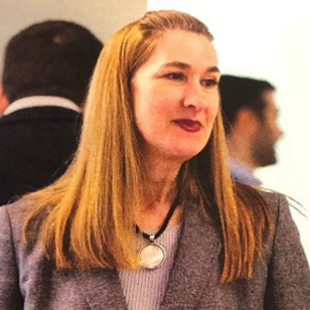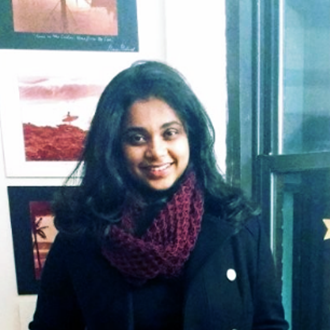What does a Human-Centric workplace look like in the United Nations? A glimpse into the Learning Managers Forum 2023
“A human-centric workplace means to allow for more agility, for greater innovation, for creativity, to allow for speed and responsiveness, and also providing an environment for continuous professional and personal growth.” Silke Weinlich, UNSSC Head of Learning and Knowledge Services
For over 20 years, the United Nation System Staff College (UNSSC) has been a proud convenor, facilitator and now knowledge management hub for the larger learning and development community across the United Nations system. Learning and development (L&D) continues to function as a pioneer in spearheading the development of professionals and facilitate training as well as drive forth the UN of the future. Therefore, a key aspect of this role is organizing the annual LMF to bring together learning practitioners from the UN and from other not-for-profit international organizations to discuss, deliberate and design learning avenues.
The Learning Managers Forum (LMF) completed its 26th successful run with an enriching agenda around the theme of ‘Power to the People: Learning for a Human-Centric Workplace’.
This year the blended forum consisted of virtual and in-person components. The launch set the context on what a human-centric workplace can look like, examining the role of learning and development. While Margaret Chitondo, Deputy Director of HR at UNICEF presented initiatives, values and practices from a UN perspective, Nigel Paine, former Learning & Development head at BBC, introduced best practices from the corporate sector. This was followed by the Inspiration Fair and Exchange, a two-day event that was open to the wider learning community within the UN system that stimulated a vibrant exchange of projects, pilots and success/failure stories to fuel learning for all.
The action then moved to Vienna, Austria to the famous Hofburg Palace, courtesy of the Organization for Security and Co-operation in Europe (OSCE), and the Vienna International Centre, courtesy of the International Atomic Energy Agency (IAEA).
Day 1: Human-Centric Learning Cultures
Nigel Paine returned to kick start the first day, but this time to answer the ‘how’ of building learning cultures, by first exploring the purpose of L&D, and situating it in terms of what organizational learning constitutes. Participants had the opportunity to work in groups to determine the actions they would take once back in their offices.
“The role of L&D is not just about courses...you are solving problems in the organization by extracting issues from the work flow and putting solutions back in. And these solutions can be around changing practices, or building specific expertise...”
To complement the potential of organizational learning to bring about change, Meher Joseph and and Sofia Exarchou, Associate Learning Officers at UNSSC, discussed the inclusion and accessibility aspect, underpinning the critical need to assess learning designs from the get-go, as a process at the planning stage, instead of relying on a feedback-driven mechanism to bolster our learning systems and outcomes.

Day 2: AI for Human-Centric Learning
Peter Frobel, Director of the Human Resources Division, IAEA commenced the day with insights into the work that the international energy agency is doing to foster healthier working environments, leveraging the opportunities posed by L&D.

Given the rapid take-up of AI tools and the consequent need to regulate data privacy concerns, Day 2 focused on how AI stands to benefit learning and development, to boost personalized learning, while also exploring ethical concerns surrounding AI-fuelled biases.
We were joined by Philippa Hardman, Founder and Creator of DOMS, AI Learning Expert and Cambridge Scholar for a rich, informative, and hands-on learning session, unpacking the AI vocabulary for the participants, as well as presenting an opportunity to explore popular generative AI tools.
“We can use powerful AI tools to do better and more qualitative and quantitative analysis of our learners, so that we make sure we are designing not just what we want to teach but in a way that makes them want to learn because the technology is tailored to their needs”, she noted.

Tom Wambeke, Chief Innovation Officer, International Training Center –International Labour Organization (ITC-ILO), and Ugo Caruso, Digital Learning Specialist, UNSSC, brought out ITC-ILO’s newly launched AI Gameboard – an interactive board game, to incentivize learners into their AI exploration journey, prompting discussions, practical usage and a modicum of wonder at AI tech!

Day 3: Play to Learn – Learn to Play
Helga Maria Schmid, OSCE Secretary General and Paolo Bernasconi, Director Human Resources atOSCE joined the participants to share their insights on building learning cultures, as well as exchanging key highlights from the LMF event.

Miguel Panadero, Senior Manager at the Knowledge Centre for Leadership and Management, UNSSC, introduced a pilot ‘Data Management Learning Dashboard’ that the college is creating to cater better to the diverse reporting needs of clients, as well as offer predictive insights to fuel future learning; by transitioning from ad hoc reports to using data dashboards.

The last event of Day 3 and indeed the Forum saw a shift from doing to ‘being in the moment’ by bringing in strategic play and improvisation specialist, Gary Ware, author of ‘Playful Rebellion’ to introduce his secret sauce of play to overcome barriers to creating a human-centric work environment by engaging participants in a series of unscripted, impromptu activities to unlock and unlearn long-term communication behaviours by embracing being in the present moment through play.
His motto, ‘Play is the SUPERFOOD of behaviour, that can help people be creative, especially in the current global scenario where people are burned out and companies are losing employees. Play can be a solution because it will help in thinking differently, in helping people connect and be the best version of themselves.

All smiles as our participants, contributors and team pose outside the Hofburg palace for LMF 2023 memorabilia!
And that’s a wrap…on to LMF 2024, as we push the boundaries of learning and development in embracing the new, while continuing to work towards building human-centric workplaces




